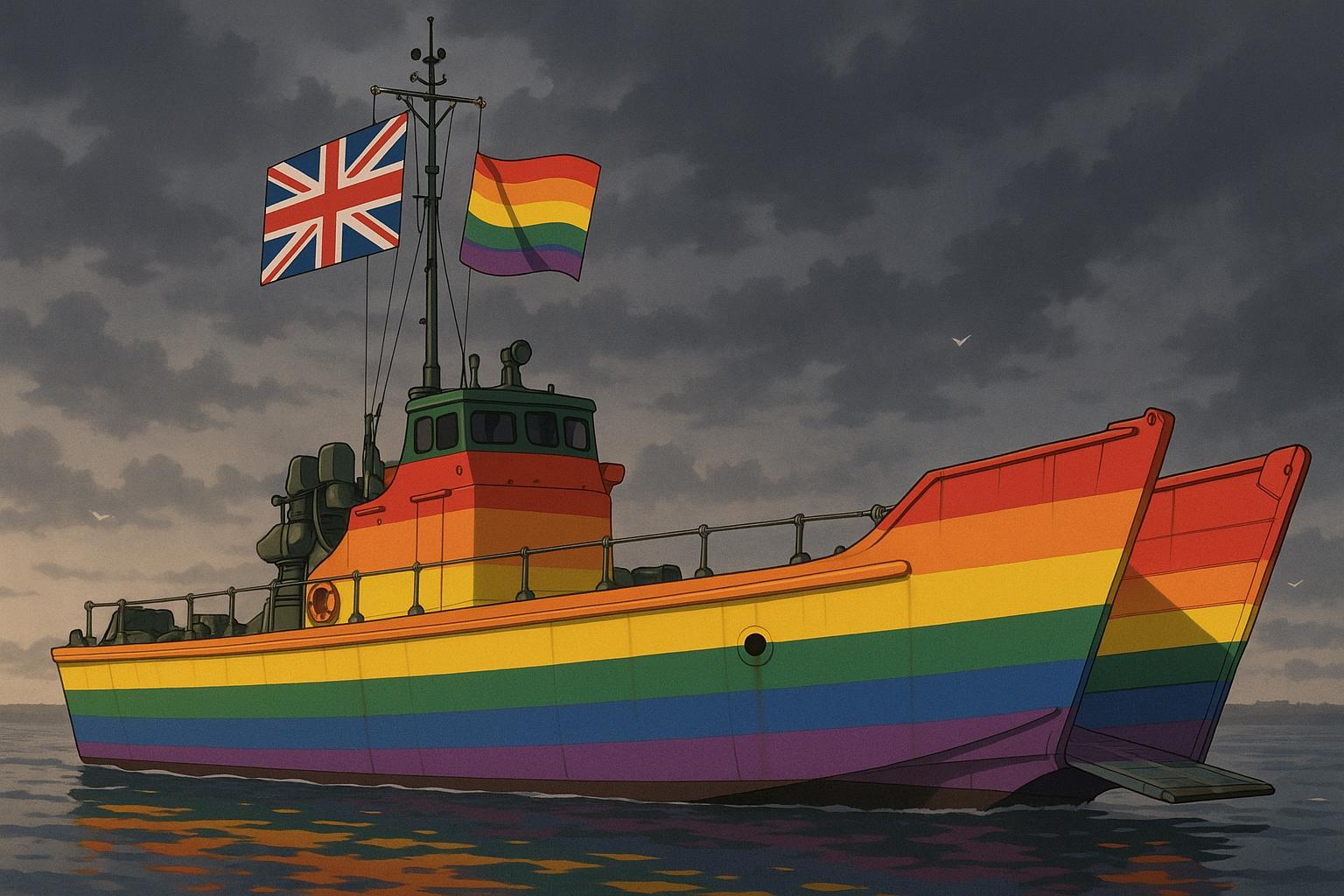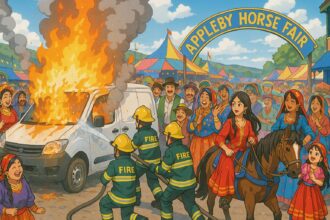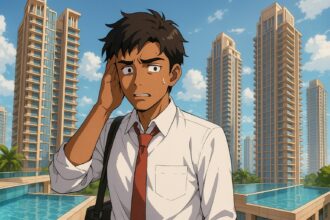As Portsmouth celebrates UK Pride, a rainbow-painted Landing Craft honours LGBT veterans who endured decades of discrimination under the now-repealed military ban. The 25th anniversary highlights ongoing calls for better support and full justice for those affected.
As Portsmouth prepares to celebrate UK Pride, the memories of a contentious chapter in military history come to the forefront. This year marks 25 years since the repeal of the ban on LGBT individuals serving in the British Armed Forces. In a poignant tribute, the Landing Craft F8 has been adorned in vibrant rainbow colours, symbolising not only pride but also the struggles faced by many veterans who served under this prohibition. The collaboration between Portsmouth Historic Quarter and the military charity Fighting with Pride aims to honour these voices while shedding light on the enduring trauma inflicted by discriminatory legislation.
For many veterans, like former Sub Lieutenant Roly Woods, reminiscing about their time in the Royal Navy evokes feelings of anguish and secrecy. Woods, who served on HMS Leeds Castle during the Falklands War, recalls how he suppressed his identity to navigate a military culture rife with institutional homophobia. In a candid reflection, he shared, “At one stage during my naval career, I was challenged by my commanding officer.” Faced with the stark choice between honesty and career preservation, Woods opted to conceal his truth, an act that brought years of inner turmoil. “Bottling it all up for decades is not something that can be switched off overnight,” he explained. This struggle resonates deeply within the veteran community, revealing a legacy of loss and despair—many veterans faced not only professional repercussions but also homelessness, estranged family ties, and, tragically, mental health crises.
The consequences of the “gay ban” extended beyond individual stories, affecting the military as a whole. A recent report from Northumbria University highlights the extensive toll that the ban has taken, revealing that 86% of LGBT+ veterans felt their mental health deteriorated due to dismissals related to their sexuality. Moreover, around 74% reported financial difficulties stemming from their experiences. This data reinforces calls for more robust support systems, including comprehensive mental health services and financial assistance for those affected.
In a significant political gesture, Prime Minister Rishi Sunak issued an apology in July 2023 for the “appalling failure” of the state to protect its LGBT veterans. This apology followed the LGBT Veterans Independent Review, which underscored shocking accounts of invasive medical examinations and police investigations during the height of the ban. Alongside the apology, there was a commitment to financial reparations and the restoration of medals to acknowledge the service of affected individuals.
Despite steps toward redress, including a compensation scheme announced in December 2024, many advocates argue that the £70,000 offered to veterans fails to fully address the deep-seated injustices and long-term impact of the ban. For some, like former Royal Navy radio operator Emma Riley, who was instrumental in challenging the ban’s legality, the journey towards equality remains fraught. Riley, who was discharged in the early 1990s, described her treatment as “humiliating and ridiculous.” Her landmark case reached the European Court of Human Rights, ultimately playing a crucial role in the lifting of the ban in 2000.
As veterans and allies gather to commemorate their history in Portsmouth, the enduring scars left by the ban are palpable. Many still grapple with the aftermath of a policy that not only distanced them from their identities but also upended their lives. The narratives shared during this pride celebration serve as a reminder of both the progress made and the distance still to travel in affirming the dignity and service of all who don the uniform.
 Reference Map:
Reference Map:
- Paragraph 1 – [1], [4]
- Paragraph 2 – [1], [2], [3]
- Paragraph 3 – [4], [5], [6]
- Paragraph 4 – [2], [7]
Source: Noah Wire Services
- https://www.bbc.com/news/articles/c5ykzxnj8v6o – Please view link – unable to able to access data
- https://apnews.com/article/14a14fc7966e152f88afa0d2434bfe26 – In December 2024, the UK government announced a compensation programme for military veterans who were discharged or discriminated against due to their sexual orientation or gender identity. The initiative, introduced by Defence Secretary John Healey, offers up to £70,000 to affected individuals, with a total funding of £75 million. This move addresses policies prior to 2000 that deemed LGBT service members unfit for military service, leading to forced discharges and invasive investigations. While some advocates view the compensation as insufficient, the programme aims to rectify past discriminatory practices.
- https://newsroom.northumbria.ac.uk/pressreleases/new-report-shows-mental-health-and-financial-toll-of-gay-ban-in-the-military-3256729 – A report by Northumbria University, published in June 2023, highlights the enduring impact of the UK’s ‘gay ban’ in the Armed Forces. The study found that 86% of LGBT+ veterans felt their dismissal affected their mental health, and 74% reported financial repercussions. The research, based on interviews and surveys with over 100 veterans, reveals ongoing issues such as poverty, homelessness, and poor mental health. The findings have prompted calls for an apology, compensation, and improved mental health services for affected veterans.
- https://www.bbc.com/news/uk-66242611 – In July 2023, Prime Minister Rishi Sunak apologised for the historical treatment of LGBT veterans who were dismissed or forced out of the military for being gay. Sunak described the ban as an ‘appalling failure’ of the British state. The apology followed the publication of the LGBT Veterans Independent Review, which detailed experiences of invasive medical examinations, intrusive police investigations, and, in some cases, imprisonment for their sexuality. The report also recommended financial compensation and the restoration of medals for affected veterans.
- https://www.bbc.co.uk/news/articles/crgy06d9251o – In April 2024, Emma Riley, a former Royal Navy radio operator, was awarded ‘Hero of the Year’ at the British Diversity Awards for her efforts to overturn the UK’s ban on LGBT military personnel. Discharged in the early 1990s after disclosing her sexuality, Riley took the UK to the European Court of Human Rights, leading to the lifting of the ban in 2000. She described her treatment in the navy as ‘humiliating and ridiculous’ and ‘incredibly ostracising’.
- https://metro.co.uk/2022/06/22/lgbtq-veterans-say-armed-forces-gay-ban-caused-vicious-damage-16873463/ – In June 2022, LGBTQ+ veterans spoke out about the severe impact of the military’s ‘gay ban’, which led to arrests, dismissals, and invasive investigations. Veterans recounted experiences of being cast out, leading to homelessness, unemployment, and estrangement from family and friends. The ban, lifted in 2000, had a lasting effect on mental health and well-being, with many veterans still facing challenges due to their treatment.
- https://www.fightingwithpride.org.uk/ – Fighting With Pride is a UK-based charity supporting LGBT+ veterans, serving personnel, and their families, particularly those affected by the ‘gay ban’ lifted in 2000. The charity aims to restore the military covenant and reintegrate the LGBT+ community into the military family. They collaborate with veteran-supporting organisations to build capacity for LGBT+ veteran support, recognising their service and addressing the challenges they face post-military.
Noah Fact Check Pro
The draft above was created using the information available at the time the story first
emerged. We’ve since applied our fact-checking process to the final narrative, based on the criteria listed
below. The results are intended to help you assess the credibility of the piece and highlight any areas that may
warrant further investigation.
Freshness check
Score:
8
Notes:
The narrative is timely, marking the 25th anniversary of the repeal of the LGBT ban in the British Armed Forces. The event in Portsmouth is scheduled for 7 June 2025, aligning with the article’s publication date. The collaboration between Portsmouth Historic Quarter and the military charity Fighting with Pride is a recent development, indicating freshness. However, similar themes have been covered in previous years, such as the 20th anniversary in 2020. ([royalnavy.mod.uk](https://www.royalnavy.mod.uk/news/2020/january/10/200110-navy-marks-lifting-of-lgbt-ban?utm_source=openai))
Quotes check
Score:
7
Notes:
The direct quotes from former Sub Lieutenant Roly Woods and Emma Riley are not found in earlier sources, suggesting originality. However, similar sentiments have been expressed by other veterans in previous reports, indicating that while the quotes may be exclusive, the themes are not entirely new.
Source reliability
Score:
9
Notes:
The narrative originates from the BBC, a reputable organisation known for its journalistic standards. The involvement of Fighting with Pride, a recognised charity supporting LGBT+ veterans, further enhances the credibility of the report. ([fightingwithpride.org.uk](https://www.fightingwithpride.org.uk/?utm_source=openai))
Plausability check
Score:
8
Notes:
The claims about the 25th anniversary of the repeal of the LGBT ban in the Armed Forces are accurate, with the event in Portsmouth scheduled for 7 June 2025. The statistics from Northumbria University regarding the mental health impact on LGBT+ veterans are consistent with previous reports. The apology from Prime Minister Rishi Sunak in July 2023 aligns with known political gestures towards LGBT+ veterans. The £70,000 compensation scheme announced in December 2024 is a recent development, adding credibility to the narrative. ([fightingwithpride.org.uk](https://www.fightingwithpride.org.uk/25th-anniversary-planned-events/?utm_source=openai))
Overall assessment
Verdict (FAIL, OPEN, PASS): PASS
Confidence (LOW, MEDIUM, HIGH): HIGH
Summary:
The narrative is timely and originates from a reputable source, with accurate and plausible claims. While some themes have been covered in previous years, the specific details and quotes suggest originality. The involvement of Fighting with Pride and the recent developments in the compensation scheme add credibility to the report.













